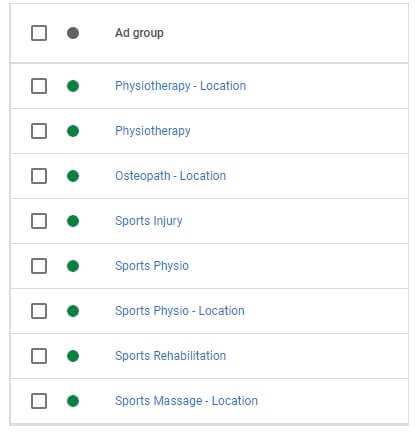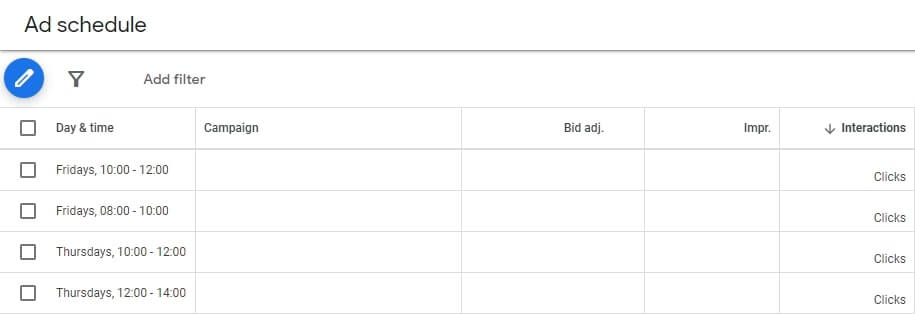A Quick Guide to Maximising Your PPC ROI
Running pay-per-click or PPC ads is undoubtedly one of the fastest and most effective ways to reach your target audience. It allows you to target specific groups of people, which makes your marketing efforts more accurate and relevant. In return, it enables you to obtain a significant return on investment by providing you with high-quality traffic, leads, or even sales for your business.
However, there is more to ensuring significant PPC ROI than merely launching a campaign on popular PPC platforms such as Google Ads. Believe it or not, the fastest way to lose money when advertising online is to dump all of it on an unoptimised campaign. This is why you must have a solid game plan to ensure that you’re not flushing your hard-earned money down the drain.
Contents
How to Run a Profitable PPC Campaign
One of the most common questions many business owners ask when starting a PPC campaign is, “How long would it take them to make their PPC ads profitable?” The truth is there is no exact answer to this question since it depends on several factors, such as the type of campaign you’re running and the nature of your business.
However, the good news is there are ways to ensure the success of your ads. There are three stages of running an effective and profitable PPC campaign. They are:
- Building the campaign (planning and research)
- Campaign creation
- Optimisation and fine-tuning
Building the Campaign
It’s vital to set a strong foundation for your PPC campaigns to ensure that you’ll get the results and the profits you are expecting.
1. Set up conversion tracking
The first thing you need to do is set up conversion tracking correctly. This is the most vital part of planning a PPC campaign because you need to be able to measure your PPC ROI. Conversion tracking is also quite useful when you need to determine your campaign’s performance later on. Because it lets you see where your conversions are coming from, it helps you identify what sort of improvements you need to make to boost your ads’ performance.

2. Perform keyword research and competitor analysis
The next step is to research your target keywords. This is to help you find the relevant keywords or search terms your prospects are using to find similar products or services online. Performing keyword research will also help ensure that you’re capturing all the correct and relevant terms for your business.
When identifying keywords to use for your PPC ads, avoid those that are overly broad or too generic. As a rule of thumb, you must determine if the keywords are just informational before making your choice. Also, ensure that the search terms you want to target have the highest purchase intent possible.
Besides keyword research, it also helps to carry out competitor analysis. This will help you determine the search terms your competitors are bidding on. It also enables you to develop strategies that are better and much stronger than the competition.
Creating and launching the campaign
Once you’re done with planning and research, the next step is to create your PPC campaign. Creating and managing a campaign is often a learning process since the data you obtain as you run your ads can help you craft better ones in the future.
1. Create ads
After identifying the keywords you want to target, the next step is to create the ads. When writing ad content, ensure that they correlate with your web content and your business’s tone of voice. Also, always include a strong unique value proposition and a clear call to action (CTA).
Match your ads with specific landing pages to make them more relevant. If your prospects click on your ads and they cannot find on your landing page what they are looking for, they are likely to leave.
2. Group products/services into different ad groups/campaigns
Many business owners or first-time marketers often made the mistake of using the “one service/product one campaign” strategy. However, it’s much better to group similar products/services into different ad groups or campaigns because it is more cost-effective. At the same time, it is more efficient since you don’t have to spend countless hours applying the same method or strategy to different campaigns.

3. Manage your ads with spreadsheets
Place your campaigns on a spreadsheet instead of building them directly on Google Ads or your chosen PPC platform. This will make it easier for you to perform quality checks and make the necessary adjustments when needed.
Optimisation
To ensure significant PPC ROI, take the time and effort to optimise and fine-tune your campaigns.
1. Monitor search queries reports
Before you can optimise your campaigns, first, you must know what their current status is. If you’ve set up conversion tracking correctly, this step would be easy for you. Ask yourself the following questions when measuring your campaign’s performance:
- What’s my cost per click (CPC)?
- Which search results your ads are showing for?
- Are you receiving enough traffic?
- What’s my click-through rate (CTR)?
- How many conversions are my ads making?
If your CPC is too high, but your ads are not bringing in more traffic, you must conduct further analysis to determine why this is the case.
Meanwhile, if you have a high CTR, it means you’re targeting the correct search terms. However, if your conversion rate is low, you must modify your ad content, landing page, and other vital elements of your campaign.
However, how exactly do you determine if your ad content, CTA, or landing page is the problem? To eliminate guesswork, check your bounce rate metrics to determine which part of your campaign needs adjustment. You can also install a heatmap tracker to determine what people are doing once they arrive on your landing pages.
2. Choose the best time and day of the week to show your ads
To obtain the best possible results, find out when your ads are the most profitable. Then, focus on advertising your business during those times. For instance, if you want your prospects to call you, it would be unwise to run ads during midnight since people are less likely to pick up the phone at those times. Similarly, advertising during weekends can be expensive since competition is usually stiff during those periods.

Let the Experts Help
Running a PPC campaign can be challenging, especially if you don’t have prior experience. While it can provide you with an effective and inexpensive way to reach your target audience, it can quickly sap your money if you don’t know how to optimise your ads. As such, make sure to consider the tips discussed above.
If you would rather focus on running your business and leave the management of your PPC campaigns in the hands of experts, we are happy to help. At Springhill Marketing, we possess specialist knowledge of creating and running Google Ads to help businesses grow and obtain a greater return on investment. Please speak with us today and let us create a PPC campaign tailored for your specific needs.
Drive Your Business Towards The Best Results.
Talk to us about how we can help.












